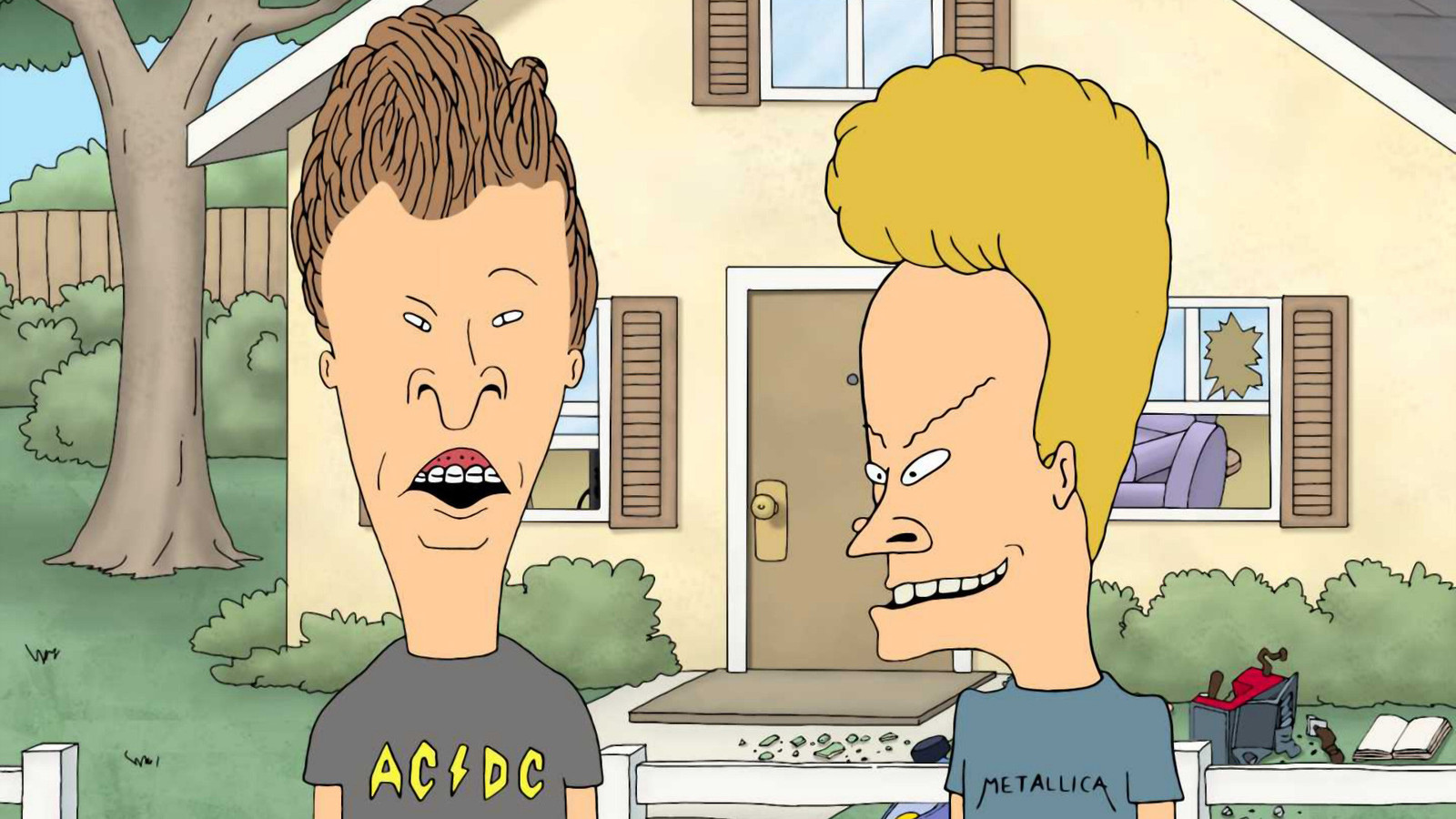
Mike Judge built his legend on American simple-mindedness
Mike Judge is a genius.
Whether it's the wage slaves of Initech depicted in "Office Space," the (now) uncomfortably prescient near-future of "Idiocracy" or the simple middle-aged men of Arlen, Texas featured in "King of the Hill," the simple, useful idiots of Mike Judge's oeuvre are presented in a way that's both more subversive and funnier than most of his contemporaries.
But we're not here to talk about them. We're here for his crown jewels: "Beavis and Butt-Head."
In 1992, Judge, then a virtual unknown, presented the world with "Frog Baseball," a short featured on MTV's avant-garde (at least it felt like it) animated anthology series "Liquid Television." The short opens on a pair of disaffected youths who clearly watched too much TV and giggled way too much for their own good.
The sociopaths in training, Beavis and Butt-Head, go outside to blow up some insects and then see a frog that, to them, looks like a baseball that needs to be hit. From there, magic occurred.
"Frog Baseball" was a hit, and the demand for the dim-witted best friends from an unnamed part of Texas turned into a series order that premiered for the first time on March 8, 1993.
In the 25 years since that first episode aired, Judge became a rock star in his own right — not the overexposed rock star that ends up face down in a pool somewhere because the brightest stars burn the hottest, but a rock star of your favorite jam band variety.

The concept behind "Beavis and Butt-Head" was relatively simple: original content mixed with commentary over music videos. The music video commentary was every bit as hilarious as the actual episodes themselves, done in a way that matched the style of "Mystery Science Theater 3000" — except much, much dumber.
The video commentary was where Judge crafted something both special and relevant to an audience that, in 1992, was still very much a part of the music video generation, leading to the most memorable moments of the show itself. Take, for example, Beavis, who, while watching Henry Rollins' "Liar" would go apoplectic as Rollins dove headlong into the song's chorus.
In those moments, the duo was every bit a reflection — or at least a perceived reflection — of the very audience who couldn't get enough of what was, in no uncertain terms, Judge's critique of the simple American.
As inexplicable as "Beavis and Butt-Head" may have been, the pair, and their simplicity, were a wellspring for Judge, who, largely because he was either lazy or disinterested, allowed one of his side characters, Daria Morgendorffer, be spun off into another hit for MTV, "Daria." From there, he took another side character, Tom Anderson, de-aged him, and parlayed that into his most successful character: Hank Hill, star of Fox's “King of the Hill,” which after a 13-season run may be returning.
Therein lies the genius of Judge. While he could've rode the "Beavis and Butt-Head" gravy-train all the way to a burned-out career, Judge, sometimes through no plan of his own, slow played his success. Now maybe that's because studio execs loved his work but had no idea how to market it, as in the case of now-cult classics "Office Space" and "Idiocracy," something then-Fox chief Tom Rothman openly admitted during a New York Times piece on Judge in 2017.
Judge's current success lies in his series "Silicon Valley," airing on HBO. The series focuses on the adventures of new-money tech lords who, while intelligent on the surface, still show the connective tissue of “Beavis and Butt-Head,” where socially awkward characters make for the best protagonists.
Judge zeroes in on a specific kind of simplicity in "Silicon Valley," that of smart people. This illustrates how even the best and brightest manage to crash and burn in one self-created disaster after another just as their even simpler progenitors Beavis and Butt-Head managed to do. That's the shared theme between all of Judge's projects. Although wildly different, they all share the same earnest simplicity that manages to connect with audiences at a cult level.
One can draw a line from simple idiots Beavis and Butthead on through to Bill Dauterive and Dale Gribble and further on, through Hank Hill and Peter Gibbons and Joe Bauers and end up at Erlich Bachman and Nelson "Big Head" Bighetti. All of them are well-meaning, yet overly simple in both motivation and execution in a very American kind of way. They're all the same character, within a couple of degrees of one another, and even within that sameness there remains something fresh and compelling, which for comedy, is essential. What began with "Beavis and Butt-Head" still feels like them somewhere within "Silicon Valley," a place the duo would never, ever exist, but who live on in the characters that display a similar simplicity exclusive to the American experience.
And maybe, in the end, that is the nucleus of the genius of Mike Judge. He's giving audiences the same thing he's always given them but never too much, never too obvious, and just enough to live within that place of comfort where you enjoy something so much, but never really notice it until it's gone.
More must-reads:
Trending in Entertainment
Customize Your Newsletter
 +
+
Get the latest news and rumors, customized to your favorite sports and teams. Emailed daily. Always free!

